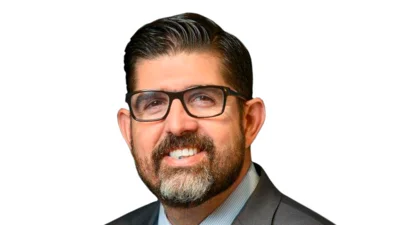University of Florida recently issued the following announcement.
Leaders of the 23-county Florida High Tech Corridor today shared the stage at Synapse Summit 2022 where they celebrated a 25-year legacy of partnership and innovation and unveiled a commitment to “unleash the region’s expotential.”
University of Florida President Kent Fuchs, University of Central Florida President Alexander Cartwright and Interim University of South Florida President Rhea Law participated in a discussion moderated by The Corridor’s CEO Paul Sohl, Rear Adm. USN (ret), about their hallmark partnership approach, the role of universities in Florida’s innovation economy and how their universities are preparing the next generation of innovators.
As leaders reflected on The Corridor’s rich history and shared their vision for the future, their commitment to “unleash the region’s expotential” conveyed a new promise built around four themes that will cement The Corridor’s strategy moving forward: boundary-breaking collaboration, community-driven innovation, serving the underserved and maximizing resources to fuel meaningful outcomes. Three significant themes emerged from the panel discussion:
- The state of innovation in Florida is strong and accelerating. “COVID accelerated a lot of things and one of those is the perception nationally of our state and of innovation in our state,” said Dr. Fuchs. He called the “triangle of universities” a major source of this innovation and each president cited examples – from collectively expending $2 billion in research, to securing more patents than other major tech hubs in the nation, and increasingly being known as the location to pursue and launch new ideas. “As Florida works to become one of the top 10 economies in the world by 2030, our universities and our partnerships will play an integral role in achieving that goal,” said Law. Dr. Cartwright added, “When I came to Orlando, I noticed the difference in attitude. Florida has this attitude. People have taken risks here and been successful. Their tolerance for taking risks and trying new things is higher. That’s huge for research, economic development and education.”
- The partnership model of The Corridor reflects the collaborative attitude that is critical for the high-tech industry’s future. “Innovative partnerships are part of our DNA, and coupling with industry will continue to be the key for new research, commercialization and talent-building,” said Dr. Cartwright. All agreed that Florida’s state university system is unique, encouraging students and faculty to think differently, engage with the community and focus on work that makes a societal impact.
- Through their alliances and collaborations, the universities are ready (more than ever) to tackle the speed and rate of change occurring in the tech industry, across businesses, in their own institutions, in the state and throughout the world. As an example, recognizing the transformative impact of artificial intelligence (AI), leaders at UF added courses for students from all disciplines – including arts and humanities – to teach them how AI is applied in all facets of our personal and professional lives. Similarly, Law acknowledged that USF and its partner institutions must collaborate to more quickly solve societal problems and prepare students for careers that do not yet exist.
For the last 25 years, The Corridor has been a force multiplier, harnessing the power of “coopetition” to create a high-tech center of gravity along the I-4 corridor. Its unwavering commitment to connect, collaborate and convene partners across academia, industry and in the community has nurtured a robust innovation economy across 23 counties in Florida.
Together with its partners, The Corridor has generated billions of dollars in downstream economic impacts through initiatives that accelerate research and development, inspire and train students to pursue STEM-based careers, and advance the quality of life in our communities through technological innovation and technology-enabled initiatives.
Newer programs such as Cenfluence, the Central Florida Cluster Initiative, and a formalized mentorship program for women business owners pursuing Small Business Innovation Research (SBIR) grants exhibit an intensified focus on core themes driving the new brand.
Thousands of entrepreneurs, investors, resource organizations and others from the innovation community in Florida and beyond enjoyed a front-row seat to the presidents’ conversation and brand reveal, both in person and online. A recording will also be made available to subscribers of The Corridor’s new podcast: Tech’s Potential.
Learn more about The Corridor and how to connect at www.floridahightech.com.
Original source can be found here.


 Alerts Sign-up
Alerts Sign-up